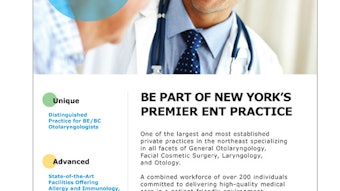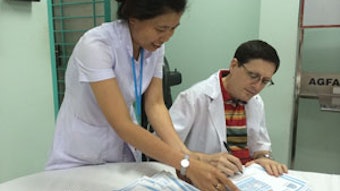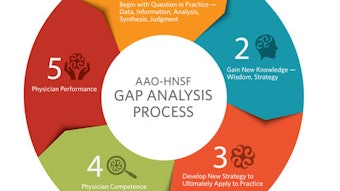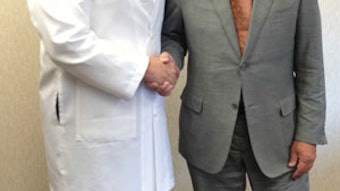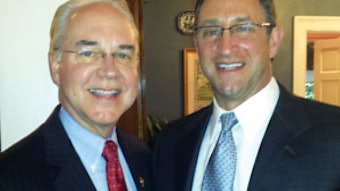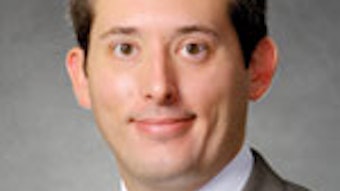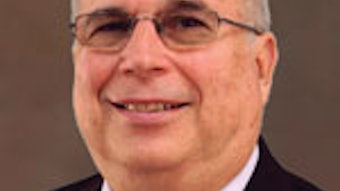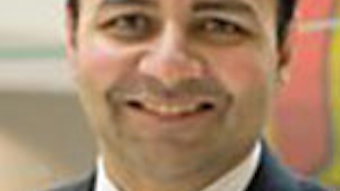Having the Proper Perspective
In response to the rapid changes in healthcare, reform of delivery and payment models, and the huge ripples affecting physician/patient relationships and practice models, attention has been paid to the physician’s individual satisfaction and how it may be changing. The American Medical Association (AMA) contracted a study from the Rand Corporation which concluded, not surprisingly, that “…[W]hen physicians perceived themselves as providing high-quality care or their practices as facilitating their delivery of such care, they reported better professional satisfaction.”1 The report goes on to state that barriers to providing such care and achieving that satisfaction can arise both from within the practice (lack of support of leaders and practice partners, internal conflicts) and be imposed from external sources (mandates, regulations, denials of coverage, utilization hassles, reporting burdens, EMRs, etc.). If you haven’t read this report, I strongly urge you to review its findings and ponder how it may relate to your situation. As I have read this report and heard it discussed at several strategic meetings, and listened and participated in the conversations regarding how to restore, improve, and augment physician satisfaction by facilitating physician’s desire to provide high quality care, I am reminded of the social and behavioral science literature on the role of norms and adaptation in the measurement of individual happiness. For the last century, progressive studies of human happiness have revealed results that are perhaps not intuitive. Using validated survey instruments, studies show that nations whose populations are relatively happy have higher rates of suicide than those with generally reported lower levels of happiness. Carol Graham, Senior Fellow at the Brookings Institute has written Happiness Around the World: The Paradox of Happy Peasants and Miserable Millionaires. Poor people in very poor countries report higher levels of happiness than poor people in wealthier countries with far more income and resources and a higher standard of living; “Because,”as Dr. Graham states, “average country income levels do not matter to happiness, but relative distances from the average do…” As we navigate the challenges of health care reform, we feel the stress and strain of being required to understand concepts that were not necessarily part of our medical training –management of systems and populations, assessing and stewarding global costs of care, balancing actuarial and longitudinal data with individual accountability for specific patient encounters and goals. In his book, David and Goliath, author Malcolm Gladwell reminds us of the concept of “relative deprivation,”a term coined by sociologist Samuel Stouffer during World War II, studying over half a million men over a wide range of comparative situations. He concluded that “…we form our impressions not globally, by placing ourselves in the broadest possible context, but locally –by comparing ourselves to people in the same boat as ourselves.” As we add new skills and abilities in leadership, followership, knowledge management, communications, collaborative team-based care, inter-professional education, and many others, it will serve us well to remember how incredibly blessed we are in our global outlook. Let’s use those advantages –technology, political freedom, financial resources, public respect, education, and collegial relationships to forge better systems of health care, reduce waste, improve patient outcomes, and advance public health. http://www.rand.org/pubs/research_reports/RR439.html
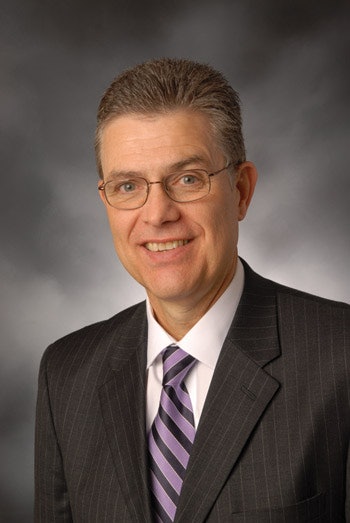 David R. Nielsen, MD AAO-HNS/F EVP/CEO
David R. Nielsen, MD AAO-HNS/F EVP/CEOIn response to the rapid changes in healthcare, reform of delivery and payment models, and the huge ripples affecting physician/patient relationships and practice models, attention has been paid to the physician’s individual satisfaction and how it may be changing. The American Medical Association (AMA) contracted a study from the Rand Corporation which concluded, not surprisingly, that “…[W]hen physicians perceived themselves as providing high-quality care or their practices as facilitating their delivery of such care, they reported better professional satisfaction.”1 The report goes on to state that barriers to providing such care and achieving that satisfaction can arise both from within the practice (lack of support of leaders and practice partners, internal conflicts) and be imposed from external sources (mandates, regulations, denials of coverage, utilization hassles, reporting burdens, EMRs, etc.). If you haven’t read this report, I strongly urge you to review its findings and ponder how it may relate to your situation.
As I have read this report and heard it discussed at several strategic meetings, and listened and participated in the conversations regarding how to restore, improve, and augment physician satisfaction by facilitating physician’s desire to provide high quality care, I am reminded of the social and behavioral science literature on the role of norms and adaptation in the measurement of individual happiness. For the last century, progressive studies of human happiness have revealed results that are perhaps not intuitive. Using validated survey instruments, studies show that nations whose populations are relatively happy have higher rates of suicide than those with generally reported lower levels of happiness. Carol Graham, Senior Fellow at the Brookings Institute has written Happiness Around the World: The Paradox of Happy Peasants and Miserable Millionaires. Poor people in very poor countries report higher levels of happiness than poor people in wealthier countries with far more income and resources and a higher standard of living; “Because,”as Dr. Graham states, “average country income levels do not matter to happiness, but relative distances from the average do…”
As we navigate the challenges of health care reform, we feel the stress and strain of being required to understand concepts that were not necessarily part of our medical training –management of systems and populations, assessing and stewarding global costs of care, balancing actuarial and longitudinal data with individual accountability for specific patient encounters and goals.
In his book, David and Goliath, author Malcolm Gladwell reminds us of the concept of “relative deprivation,”a term coined by sociologist Samuel Stouffer during World War II, studying over half a million men over a wide range of comparative situations. He concluded that “…we form our impressions not globally, by placing ourselves in the broadest possible context, but locally –by comparing ourselves to people in the same boat as ourselves.”
As we add new skills and abilities in leadership, followership, knowledge management, communications, collaborative team-based care, inter-professional education, and many others, it will serve us well to remember how incredibly blessed we are in our global outlook. Let’s use those advantages –technology, political freedom, financial resources, public respect, education, and collegial relationships to forge better systems of health care, reduce waste, improve patient outcomes, and advance public health.

